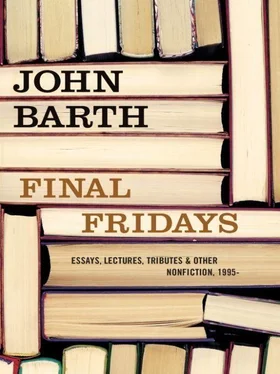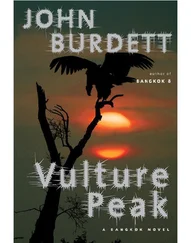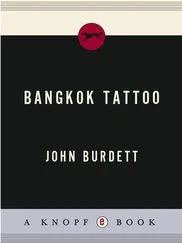Self-conscious, uninnocent mythic herohood; historically aware and prescient messiahship — they are not callings for the faint of heart.
In real, non-scripted life, of course, the distinction between Case-1 and Case-2 heroes and saviors is often notoriously less clear, at least as perceivable from “outside,” than it is in these thought experiments. 15God knows whether the Nazarene from Galilee was the Messiah, although every Christian ipso facto believes him to have been, and it is only on the hypothesis of his having been that the Jesus Paradox is energized. He knows by heart the excruciating script; per the poignant paradox, however, he isn’t acting , but reciprocally validating to the end what has validated him — from the beginning.
How It Was, Maybe: A Novelist Looks Back on Life in Early-Colonial Virginia and Maryland
This address, on a subject about which I’m a bit more knowledgeable (or once was, anyhow) than about Biblical texts, was delivered at the Williamsburg Institute’s 50th Annual Forum, in Colonial Williamsburg, Virginia, in February 1998—a novel and rather challenging lecture-venue for me, but an attractive one. I include it here with a tip of the hat to the endlessly resourceful, somewhat protean Captain John Smith on the 300th anniversary of his first exploratory cruises from Jamestown to the head of Chesapeake Bay.
THE OPERATIVE WORDS in my title, as I trust you’ll have noticed already, are the words “maybe” and “novelist.” They are intended not quite to disqualify me from addressing an audience of professional and amateur specialists on the subject of colonial life hereabouts, but to disclaim any particular authority in the matter — in short, to cover my butt. By trade and by temperament I am in fact not any sort of historian or antiquarian, but a novelist and short-story-writer, a fictioneer — a professional liar, we might as well say, of whom the most one can reasonably demand is that his fabrications be of professional quality. I’ll do my best.
What’s worse, I’m not even a historical novelist, properly speaking. The straightforward historical novel — Margaret Mitchell’s Gone With the Wind , Nordhoff and Hall’s Mutiny on the Bounty , James Michener’s Chesapeake —is a category of fiction that makes me just a tad uneasy, 1even though I’ve much enjoyed such exceptional specimens as Robert Graves’s Roman-Imperial epic I, Claudius . Of my dozen-plus published books, only one and a half have anything at all to do with colonial Virginia and Maryland, and the one called The Sot-Weed Factor —which very much does have to do with life in early-colonial Tidewaterland — was written between 1956 and 1960, when its author was not yet thirty years old. I wasn’t exactly a greenhorn back then in the medium of fiction (my first two novels had been published already), but I was an entire novice in the area of historical fiction and its attendant research. It’s gratifying to me that this many years after its initial appearance, the Sot-Weed novel remains in print. The flip side of that gratification, however, is that its author is still sometimes mistaken for an authority on matters of regional history, when in fact what I’ll be looking back on here is not only Life in Early-Colonial Et Cetera but my researches into that subject four decades ago.
Just recently, for example, I got a call from a bona fide colonial historian at work on a study of William Claiborne’s 17th-century Virginian trading post on Kent Island, in the upper Chesapeake: a famous thorn in the side of Lord Baltimore’s first Maryland settlers. She had noticed, this historian told me, that in my Sot-Weed Factor novel Lord Baltimore refers to that rogue Virginian as “Black Bill Claiborne”; her question was whether I could vouch for the use of “Bill” as a nickname for William in the 17th century. Heck no, I was obliged to tell her: Back when I was up to my earlobes in the documents of our colonial history, I might have confirmed or disconfirmed that usage with some confidence, but that time itself was history now. I then offered her my guess that although “Will” was unquestionably the most common nickname for William back then, if I chose to have Lord Baltimore say “Bill,” it was quite possible that I had seen that sobriquet deployed in some colonial document or other. But I reminded her, as I now remind you-all, of Aristotle’s famous distinction between History and Poetry — between how things were and how things might have been , or let’s say between verity and verisimilitude — and further, that while my memory is that in that novel I tried to stay rigorously close to the facts of colonial life and language where such rigor was appropriate, it was not at all impossible that the muse of Poetry rather than that of History dictated “Black Bill Claiborne,” as a denunciation more euphonious than “Black Will Claiborne.” (“Wicked Will,” I guess I could’ve called the fellow, if “Bill” is in fact an anachronism — but then “Wicked Will” sounds too much like that night-calling bird, doesn’t it….)
You see how we storytellers operate: Truth, yes — but not always truth to the historical data. And how do historians operate? Well, my caller dropped me a note somewhile later to thank me for my assistance and to announce her intention of staying with “Bill,” despite my warning, on the strength of The Sot-Weed Factor ’s “general historical authenticity.” It makes a person wonder.
IS THAT THE end of my disclaimer? Not quite, for it needs to be pointed out that except for Sot-Weed ’s “true story of Captain John Smith and Pocahontas” 2—which a Richmond book-reviewer back in 1960 found so scandalous that he seriously wondered whether present-day Virginians who claim descent from Chief Powhatan’s daughter mightn’t find my version legally actionable — except for that interpolated story-within-the-story, the novel deals almost exclusively with life in late-17th/early-18th century Maryland rather than Virginia, and as everyone here knows, “the fruitful sisters Leah and Rachel” (as John Hammond called the two colonies in his promotional tract of 1656) were different siblings indeed. To the Native Americans of Chesapeake country who were busily being displaced, it may well be that one boatload of paleface imperialists seemed much like another; but by the end of the 17th century the third and fourth generation of mainly Anglican colonial Virginians were a relatively established and even somewhat civilized operation, at least in the Old Dominion’s tidewater areas. Catholic-refugee colonial Maryland, by contrast — R.C. in its origins, I mean, although its policy of religious tolerance soon enough led to the displacement of Catholic by Protestant regnancy and the attendant shift of the colony’s capital from St. Mary’s City to Annapolis in 1695—was a generation behind and in my (amateur) opinion still comparatively raw at the century’s end. Fourteen years ago, on the occasion of Maryland’s 350th birthday, I spoke about this difference in a little commemorative piece for the Baltimore Sun ’s Sunday magazine, from which I’ll quote a few paragraphs here by way of approaching our subject:
When Lord Baltimore’s expeditionary vessels Arke and Dove entered Chesapeake Bay 350 years ago [1634], their passengers and crew did not discover Maryland. The place was already here. The main features of its present topography — the ocean barrier islands, the flat eastern peninsula with its southern marshes, the piedmont country rolling west to the mountains, and at the heart of it all the great bay with its intricate estuaries and tributaries — these had been pretty much in place since the latest glaciers leaked away 10,000 years before. Various “Indians” had settled in over the last millennium or two and, like Adam in the Garden, had given names to the things around them. In our ears now, those names are both a litany and an elegy: opossum, raccoon, tomahawk, tobacco; also Chesapeake, Choptank, Patapsco, Piankatank, Sassafras, Susquehannah, and the rest…. These musical Algonquian names are about all that remains to us of the people who lived here many times longer than our comparatively short but enormously consequential residency. From time to time the aboriginals hassled one another; the northern Susquehannocks were regarded by their tidewater neighbors as particularly pushy, as are some out-of-state weekend watermen by today’s locals. But rearranging the landscape on any very significant scale was both against their principles and beyond their technology.
Читать дальше












